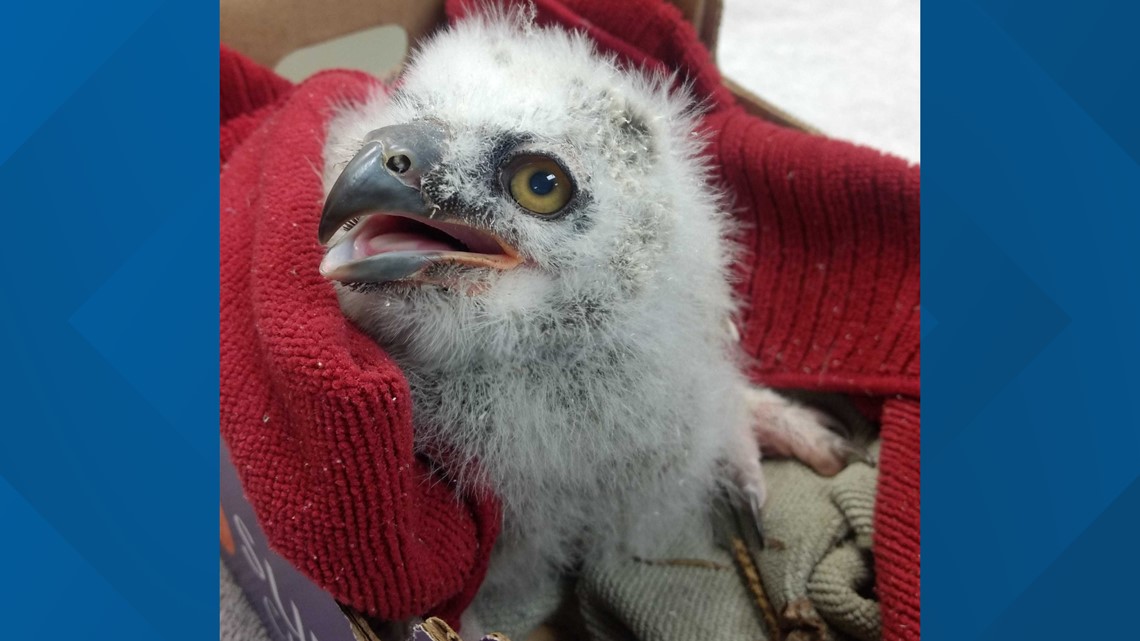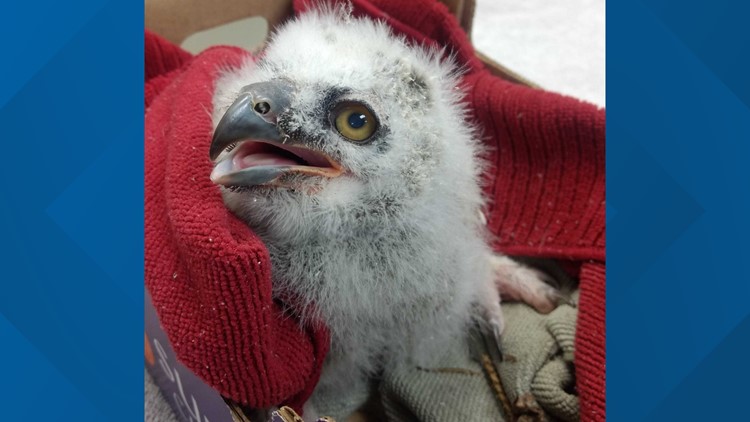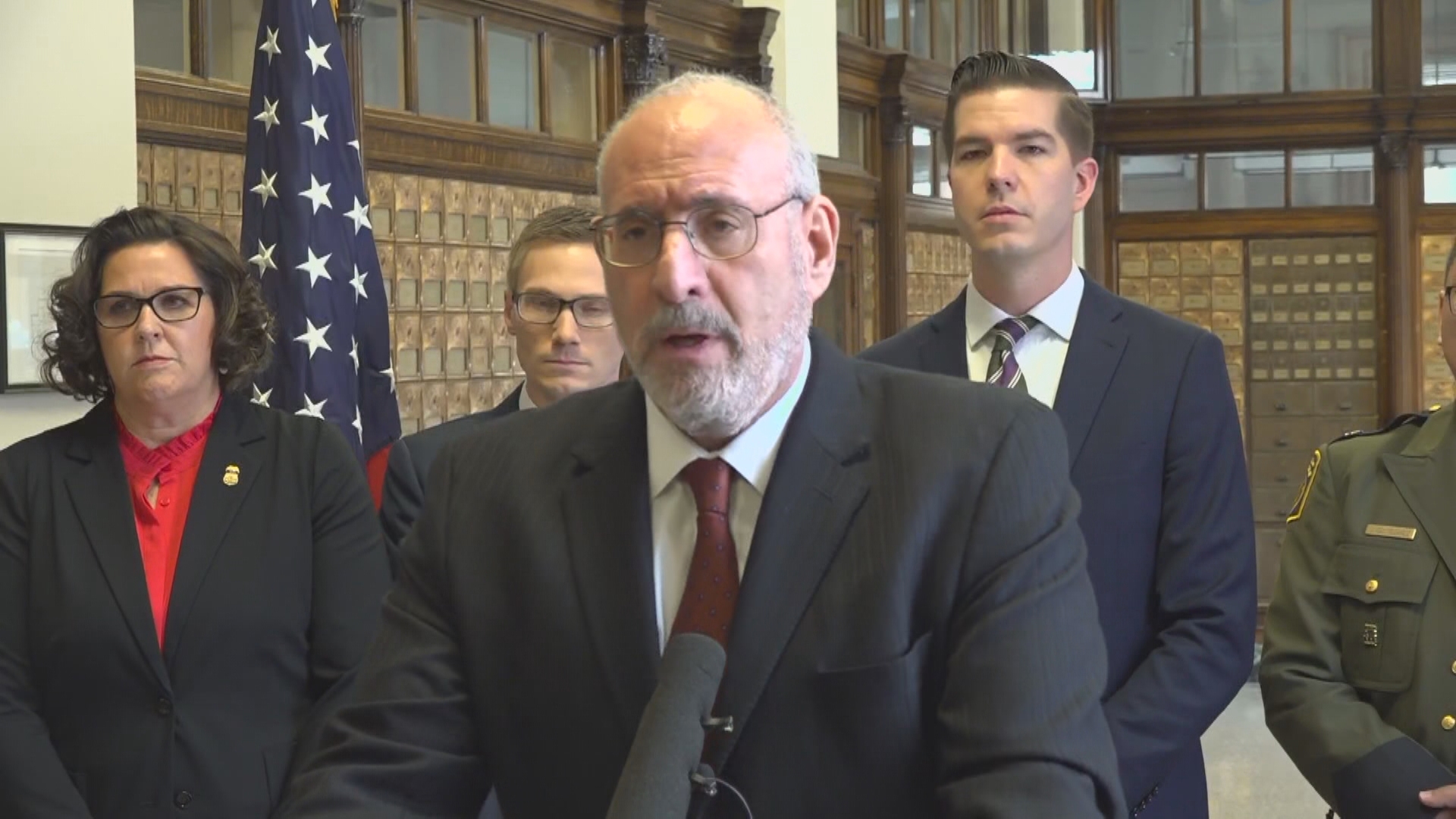ST PAUL, Minn. — There's a new resident at the University of Minnesota Raptor Center in St. Paul.
The center says the two-week-old great horned owlet was found in the Shakopee area and brought to the clinic over the weekend. The fuzzy beaked baby was found on the ground Saturday night with two other nestmates.
If you come across a baby raptor in your yard, the Raptor Center says to postpone any tree work until the later summer or fall after nesting season. Don't be alarmed if you see a young raptor out of the nest and on the ground — that's where many spend part of their lives.
But if you have outdoor cats, keep them indoors if a raptor is nearby.
And before you try to "rescue" a baby raptor, call the center or a local rehab facility to get a professional opinion.


If you come across a raptor that's obviously injured and needs to be moved for its safety, the Raptor Center recommends using these tips:
- Safety first! Do not attempt to capture an injured raptor on a busy roadside, in water, or in other potentially dangerous locations
- Protect yourself from sharp beaks and talons Wear safety glasses and gloves; larger raptors will require extra protection
- Approach slowly with a towel or blanket Make sure the blanket is hiding your face as you approach, but you can take “peeks” as you get closer. What direction you approach will depend on your surroundings
- Gently cover the entire bird with the towel or blanket, pin its wings to its body, lift it, and gently place it in a prepared transport container Remove the towel or blanket as you let go, but remember: even a seriously injured raptor is potentially dangerous
- Transport a raptor is in a plastic dog or cat kennel, or in a sturdy cardboard box with the top closed. Avoid bird or wire cages, as these can cause feather and soft tissue damage, and use a carrier that has plenty of ventilation holes and should only be slightly larger than the size of the bird
- Provide the bird with a dark, quiet, calm, warm environment Darkness has a calming effect on birds and extra care should be taken to keep the bird away from children and pets
- Do not make any stops during transport. Like other animals, raptors can overheat quickly in hot vehicles or go into shock if they are injured and exposed to extreme cold
Watch more local news:
Watch the latest local news from the Twin Cities in our YouTube playlist:


